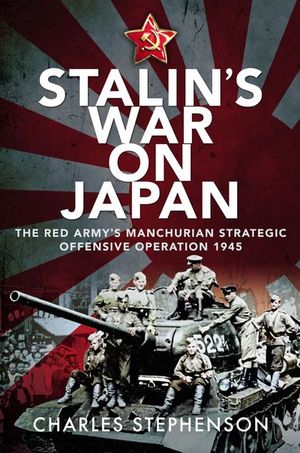Stalin's War on Japan
Published by Pen & Sword Books
This WWII military study examines the critical yet overlooked Soviet offensive on Japan’s puppet state and its influence on winning the Pacific War.
Did Japan surrender in 1945 because the Americans dropped atomic bombs on Hiroshima and Nagasaki? Or because of the crushing defeat inflicted by the Soviet Union in Manchukuo, the Japanese puppet state in north-east China?
In Stalin’s War on Japan, Charles Stephenson describes the Soviet offensive from the top-level decision-making and early planning stages to its decisive outcome on the ground. He also considers to what extent Japan’s capitulation is attributable to the atomic bomb or the stunningly successful entry of the Soviet Union into the conflict.
Stephenson combines a vividly detailed narrative of the invasion itself with an absorbing account of the political and diplomatic process that gave rise to the offensive—with particular focus on the Yalta conference. There, Stalin allowed the Americans to persuade him to join the war in the east; a conflict he was determined on entering anyway. Stalin’s War on Japan sheds new light on the last act of the Second World War.
BUY NOW FROM
COMMUNITY REVIEWS

